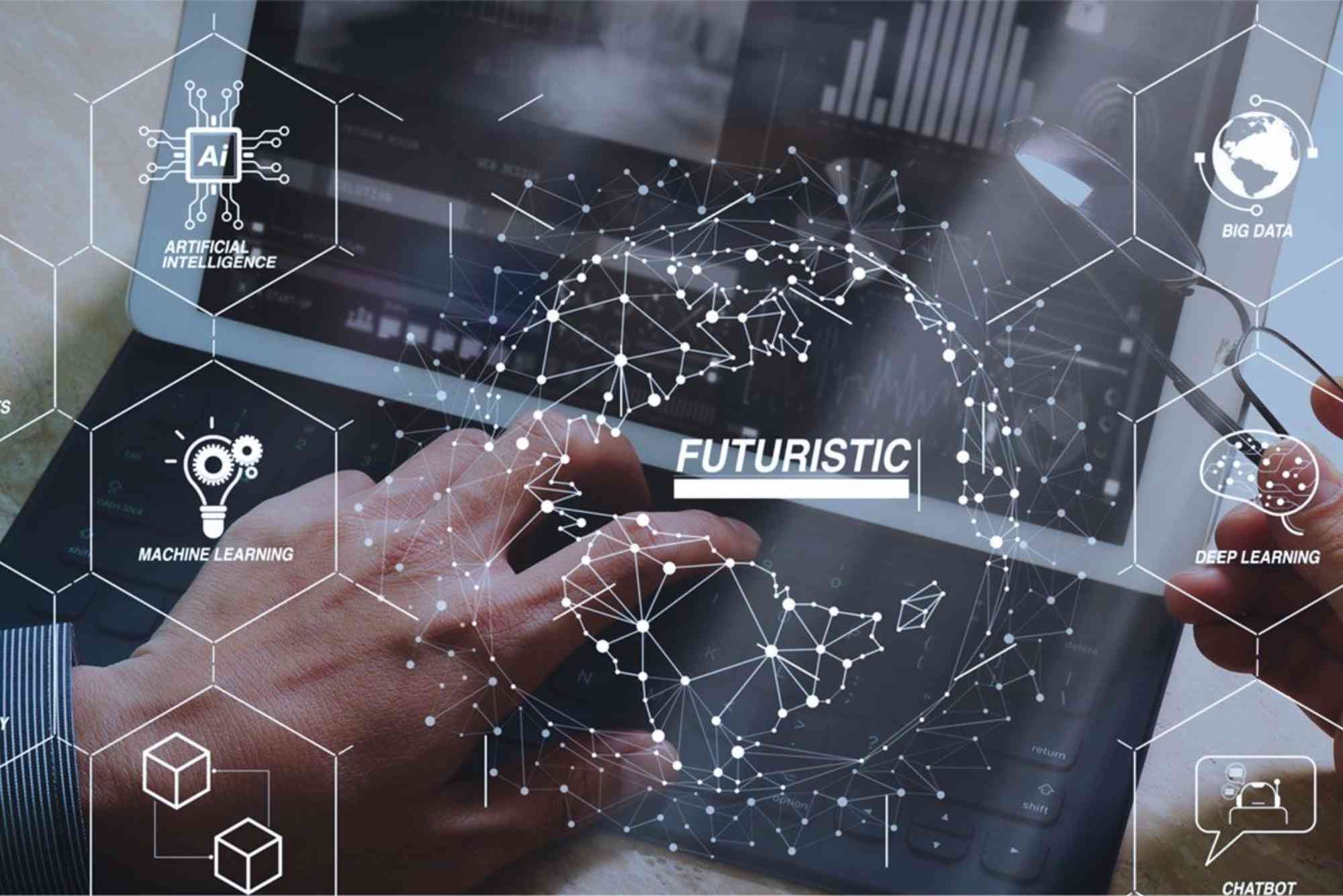Food Tech Brainport: Driving Innovation in the Future of Food
Innovation in food technology is transforming how we produce, process, and consume food globally. At the heart of this revolution lies Food Tech Brainport, a dynamic ecosystem in the Netherlands that is pioneering breakthroughs in food innovation. This vibrant cluster brings together startups, established companies, research institutions, and government bodies to push the boundaries of food tech. In this article, we will explore how Food Tech Brainport is shaping the future of food, driving sustainable solutions, enhancing food safety, and boosting economic growth.
What Is Food Tech Brainport?
Food Tech Brainport is a high-tech ecosystem located in the Brainport region of the Netherlands, specifically centered around Eindhoven. Known as one of the most innovative regions worldwide, Brainport is famed for its cutting-edge developments in technology and industry. Food Tech Brainport harnesses this innovative spirit and applies it specifically to the food sector.
The initiative focuses on integrating advanced technology with food production and consumption to create smarter, healthier, and more sustainable food systems. It serves as a collaborative platform where various stakeholders share knowledge, co-create solutions, and accelerate food tech innovations.
Why Food Tech Brainport Matters
Food Tech Brainport is not just another food innovation hub. Its significance lies in the unique way it combines deep technological expertise with the urgency to address global food challenges. Rising populations, climate change, resource scarcity, and shifting consumer demands require radical changes in how food is sourced and delivered. Food Tech Brainport steps in by championing:
- Sustainability: Developing methods to reduce food waste, lower carbon footprints, and promote circular food economies.
- Health: Innovating nutritious and personalized food products to meet diverse dietary needs.
- Technology Integration: Using AI, robotics, sensor technologies, and data analytics to enhance food quality and efficiency.
- Economic Impact: Supporting startups and SMEs to create jobs and grow the food tech economy.
By bringing together multidisciplinary expertise, Food Tech Brainport accelerates the journey from concept to commercial impact.
Key Pillars of Food Tech Brainport Innovation
Advanced Food Production Techniques
Food Tech Brainport champions innovative food production methods that optimize yield while minimizing environmental harm. Vertical farming, controlled environment agriculture, and precision farming are gaining momentum within the cluster. These techniques allow for year-round crop production with significantly less water, land, and pesticides.
Moreover, the region is at the forefront of developing alternative protein sources, including plant-based, cultured meat, and insect protein. These novel proteins promise to reduce reliance on traditional livestock farming, which has a high environmental cost.
Smart Processing and Packaging
Another critical focus area is intelligent food processing and packaging technologies. Sensors and IoT devices monitor food freshness in real-time, helping reduce spoilage and waste. Automation and robotics streamline processing lines, ensuring hygiene and efficiency.
Sustainable packaging solutions also play a central role. Food Tech Brainport encourages the use of biodegradable and recyclable materials to tackle the global plastic pollution problem. These innovations help food companies meet consumer demands for environmentally responsible products.
Digitalization and Data-Driven Food Systems
Digital transformation is reshaping the food industry globally, and Food Tech Brainport is at the cutting edge. By leveraging big data, machine learning, and blockchain technology, stakeholders gain insights into consumer preferences, supply chain efficiency, and food traceability.
For instance, blockchain provides transparent, tamper-proof records of food origin and handling, which is crucial for food safety and consumer trust. AI-driven analytics predict demand, optimize inventory, and personalize nutrition, creating smarter food systems.
Collaboration and Knowledge Sharing
Food Tech Brainport thrives on collaboration between diverse partners. Universities, research centers, tech startups, large food corporations, and public institutions work closely to co-develop innovations. The ecosystem provides shared infrastructure, such as labs and test facilities, accelerating experimentation and scale-up.
Workshops, conferences, and innovation challenges foster an open exchange of ideas. This collaborative culture fuels creativity and ensures that solutions are practical and market-ready.
Impact on Sustainability and Global Food Challenges
One of the most compelling reasons Food Tech Brainport stands out is its commitment to sustainability. Food systems worldwide face enormous pressure from climate change, resource depletion, and social inequity. The cluster’s innovations address these challenges head-on.
By improving resource efficiency and introducing circular economy principles, Food Tech Brainport helps reduce food production’s environmental footprint. Waste valorization—turning byproducts into valuable ingredients—is becoming a common practice. The use of renewable energy in food facilities further lowers emissions.
Healthier food options, enabled by precise nutrient formulations and clean-label ingredients, contribute to better public health outcomes. Personalized nutrition solutions tailor diets to individual needs, potentially reducing diet-related diseases. Food Tech Brainport’s focus on transparency and traceability enhances food safety, reducing risks of contamination and fraud. This creates more resilient food supply chains, critical in times of global disruption.
The Role of Startups and SMEs
Startups and small-to-medium enterprises (SMEs) are the lifeblood of innovation in Food Tech Brainport. The region offers fertile ground for new ventures with access to mentorship, funding, and collaboration opportunities. Many startups focus on disruptive technologies like cultured meat production, AI-driven food design, or novel preservation techniques.
The ecosystem supports these companies through incubators, accelerator programs, and pilot facilities. This nurturing environment helps startups reduce time-to-market and scale successfully. SMEs also benefit by integrating new technologies and staying competitive. By driving entrepreneurship, Food Tech Brainport contributes significantly to regional economic growth and global competitiveness in food tech.
Education and Talent Development
No innovation ecosystem can thrive without skilled talent. Food Tech Brainport invests heavily in education and workforce development. Universities in the region offer specialized programs in food science, biotechnology, and data analytics tailored to industry needs.
Continuous learning initiatives, workshops, and internships connect students with real-world projects. This alignment ensures a steady supply of professionals equipped to drive future food innovations. Moreover, the community promotes diversity and inclusion, recognizing that a broad range of perspectives fosters creativity and better problem-solving.
Future Trends Shaping Food Tech Brainport
Food Tech Brainport is not standing still. It continuously adapts to emerging trends shaping the future of food:
- Personalized Nutrition: Tailoring diets based on genetics, microbiome, and lifestyle data.
- Sustainable Packaging Innovations: Moving beyond bioplastics to edible and fully compostable materials.
- Automation and Robotics: Expanding the use of autonomous vehicles and drones in agriculture and logistics.
- Functional Foods: Developing foods with added health benefits, such as probiotics and bioactive compounds.
- Circular Bioeconomy: Integrating food production with bio-based energy and materials for zero-waste systems.
These trends ensure Food Tech Brainport remains a global leader in food tech innovation.
Challenges and How Food Tech Brainport Addresses Them
Despite its successes, Food Tech Brainport faces challenges common to innovation clusters:
- Regulatory Hurdles: New food technologies require approval from authorities, which can be slow and complex.
- Consumer Acceptance: Introducing novel foods like cultured meat requires educating consumers and building trust.
- Capital Intensity: Food tech innovations often need substantial investment for R&D and scaling.
- Global Competition: Other regions are also investing heavily in food innovation, requiring continuous differentiation.
Food Tech Brainport tackles these by fostering strong public-private partnerships, advocating for science-based regulations, and actively engaging with consumers. Its collaborative network helps pool resources and expertise to overcome obstacles effectively.
Why Food Tech Brainport Is Key to the Future of Food
Food Tech Brainport exemplifies how innovation ecosystems can transform entire industries. By combining advanced technology, sustainability goals, and collaborative culture, it drives meaningful progress in the global food system. Its work benefits consumers, producers, and the planet alike.
As the world’s food challenges grow more complex, Food Tech Brainport offers a hopeful blueprint. It inspires others to rethink food production, make smarter choices, and embrace innovation for a healthier future. Are you interested in the future of food technology? Explore how Food Tech Brainport’s pioneering solutions could impact your business or lifestyle. Join the conversation and be part of the food innovation revolution.
FAQ
What is Food Tech Brainport?
Food Tech Brainport is an innovation hub in the Netherlands focused on advancing food technology through collaboration among businesses, research institutions, and government.
How does Food Tech Brainport promote sustainability?
It encourages resource-efficient food production, waste reduction, circular economy principles, and development of alternative proteins to lower environmental impact.
Which technologies are central to Food Tech Brainport innovations?
Key technologies include AI, robotics, IoT, blockchain, precision farming, and advanced food processing methods.
What role do startups play in Food Tech Brainport?
Startups drive disruptive innovation, benefiting from support programs that help them develop, test, and commercialize new food technologies.
Can Food Tech Brainport innovations improve food safety?
Yes, by using traceability technologies and real-time monitoring, the cluster enhances food safety and consumer trust.





